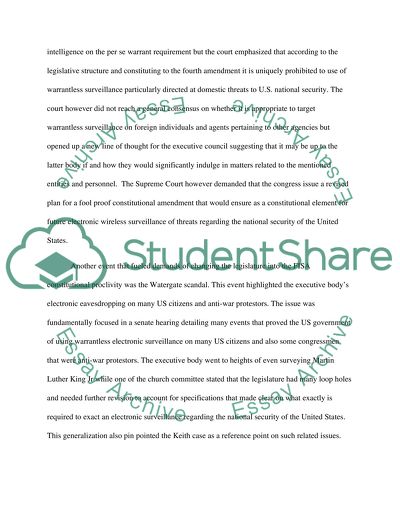Cite this document
(“Foreign Intelligence Surveillance Act (F.I.S.A.) court Term Paper”, n.d.)
Retrieved de https://studentshare.org/law/1392607-foreign-intelligence-surveillance-act-fisa-court
Retrieved de https://studentshare.org/law/1392607-foreign-intelligence-surveillance-act-fisa-court
(Foreign Intelligence Surveillance Act (F.I.S.A.) Court Term Paper)
https://studentshare.org/law/1392607-foreign-intelligence-surveillance-act-fisa-court.
https://studentshare.org/law/1392607-foreign-intelligence-surveillance-act-fisa-court.
“Foreign Intelligence Surveillance Act (F.I.S.A.) Court Term Paper”, n.d. https://studentshare.org/law/1392607-foreign-intelligence-surveillance-act-fisa-court.


